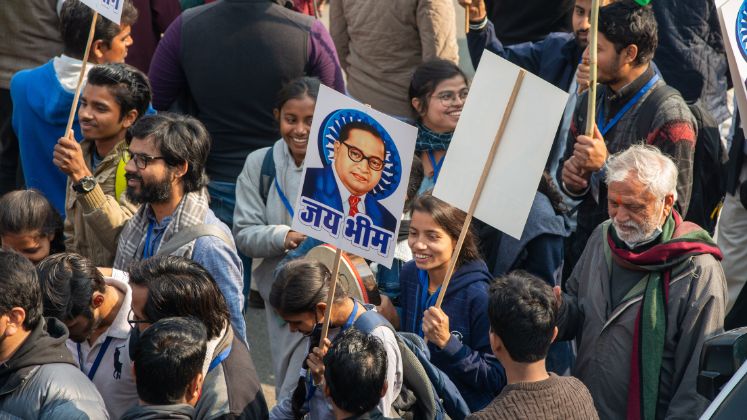In Pragmatism and Methodology, Alex Gillespie, Vlad Glăveanu and Constance de Saint Laurent advocate for pragmatism as a flexible framework for impactful social science research. Balancing philosophical and psychological depth with accessibility, the book effectively shows how a blend of methodologies grounded in real life can enable researchers to navigate contemporary challenges, writes Job Allan Wefwafwa in his review.
 Pragmatism and Methodologies: Doing Research That Matters with Mixed Methods draws from philosophical perspectives to provide both foundational and contemporary understandings of research methodology. It takes a realistic point of view, clearly stating its aim “to outline practical consequences of pragmatism in social science” methodology. The clarity of the aim enables the reader to easily visualise what to expect in the book: an analysis of pragmatism as an emergent middle ground between the much acknowledged theoretical and philosophical approaches (x).
Pragmatism and Methodologies: Doing Research That Matters with Mixed Methods draws from philosophical perspectives to provide both foundational and contemporary understandings of research methodology. It takes a realistic point of view, clearly stating its aim “to outline practical consequences of pragmatism in social science” methodology. The clarity of the aim enables the reader to easily visualise what to expect in the book: an analysis of pragmatism as an emergent middle ground between the much acknowledged theoretical and philosophical approaches (x).
The nine-chapter book convincingly proposes pragmatism as a, “coherent, flexible, and robust framework” for creating useful knowledge that can enhance society (xii).It traces the origin of pragmatism to US scholars such as Charles Peirce, John Dewey, Jane Addams, William James and George Mead, whose heterogenous belief held that “science within the context of democracy” could improve society (1). The book then conceptualises pragmatism as a methodological approach based on human activity (142), arguing that people directly affect research processes and findings, making objectivity unattainable. It uses the philosophical premise that “every philosophy has to start with something”; to illustrate that pragmatism begins with people’s “everyday actions and experiences that comprise the world as we know it” (6).
The book […] conceptualises pragmatism as a methodological approach based on human activity, arguing that people directly affect research processes and findings, making objectivity unattainable.
The first chapter engages the reader in situating pragmatism within a process paradigm that emphasises temporality and change and prioritises timeless things. Here, the authors contrast the pragmatic approaches that emphasise temporality with the ones that centre timelessness, to allow for multimethod research. They use figurative language such as “is the oak superior to the acorn?”, to argue about which of the two came first in terms of reproduction, thereby illuminating the importance of processes in research. This enables the reader to relate to the methodological arguments at the human experience level, effectively simplifying some philosophically opaque concepts such as “paradigms” and “epistemology” discussed in Chapter Two.
The authors’ ability to delicately balance between articulating complex philosophical concepts and writing accessibly is perhaps best demonstrated through the discussion of res extensa and res cogitans (3), things with three dimensions and things that appear in mind, respectively. The authors highlight the increasing citation of the phrase “there is nothing as practical as good theory” (ix) in the academic realm. They use the phrase to refer to the misconceptions researchers hold about theory, but it also arouses the reader’s interest in the unlikely pairing of these contrasting concepts – practice and theory. They analyse this paradox in the subsequent chapters, demonstrating that theory is not just about how knowledge is made, but also a guide on methodological decisions. The analysis anchors contemporary arguments on traditional philosophical conceptions in an accessible way.
Theory is not just about how knowledge is made, but also a guide on methodological decisions.
Although the authors rightfully acknowledge that their social and cultural psychology background influenced their writing, this gives the reader two contrasting experiences. First, the infusion of a psychology perspective into the book simplifies complex philosophical concepts using general human-life experiences, for the reader to easily understand. However, it also makes the reader from a non-psychology background wonder if the book is appropriate for them. As a reader from the media background, I easily understood the philosophical concepts such as paradigms, as explained from the psychological point of view (1, 2 and 4). However, they seemed too removed from media research to be able to apply them there. I I had to read the discussions on disinformation, conspiracy theories (Chapter Two), the emergence of “big data” (109), including “Social media data, video footage, live data, and digital archives” (110-111), to learn how the concepts might apply.
The book’s most outstanding aspect is that the reader can easily draw from lived experiences such as US electoral politics in 2016, to relate to the arguments therein.
Arguably, the book’s most outstanding aspect is that the reader can easily draw from lived experiences such as US electoral politics in 2016, to relate to the arguments therein. This is especially visible in Chapter Two which explores what it means to live in a “post-truth” society where factual basis of truth can be undetermined (26-27). Although the book’s pragmatic approach may be criticised for portraying ethics as a “box-ticking” exercise (162), it creates a basis for common ground around effective knowledge, while also avoiding presenting science as something beyond critical questioning.
The book effectively shows how practical methodologies can enable researchers to navigate contemporary challenges amid increasing relativist and realist contentions. It persuasively navigates the division between qualitative and quantitative extremists; and adds to the justification for mixed methods research (19). Chapter Three describes the division as “bypassing the subjective-objective dualism” to focus on human activity (49). For instance, the book’s allegorical discussions in Chapter Four, enables the reader to see beyond the traditional quantitative (realism) and qualitative (relativism) divide, which simplifies the concept of theory (74). It argues that research should be about “creating questions as answering them” (75). The argument enables the book’s conceptualisation of theory as a “tool in the world that dis/empowers human activity” rather than a mirror of the world (50). In this way, the book figures theory in terms of what it enables them to do, rather than whether it belongs to the real or relative duality.
The book [conceptualises] theory as a ‘tool in the world that dis/empowers human activity’ rather than a mirror of the world.
This view enables researchers to rise above paradigmatic wars between quantitative and qualitative methods. For instance, Chapter Seven advocates for multi-resolution research that uses “qualitative analysis to zoom in, revealing contextualised particulars, and quantitative analysis to zoom out, revealing statistical patterns” (135). The book successfully argues that our lived experiences can be combined with qualitative and quantitative approaches to provide “breadth and depth”, that bring rigor, robustness and insight in research (117).
Although the book attempts to simplify its philosophically anchored arguments for the reader, some arguments remain shrouded in philosophical jargon, especially in Chapter One. This may discourage unseasoned researchers who may not yet be grounded in the philosophical foundations of research methodology. That notwithstanding, the book remains a must-read for students and researchers interested in a contextual understanding of pragmatic methodology.
Note: This review gives the views of the author, and not the position of the LSE Review of Books blog, nor of the London School of Economics and Political Science.
Image credit: UX Indonesia on Unsplash.






